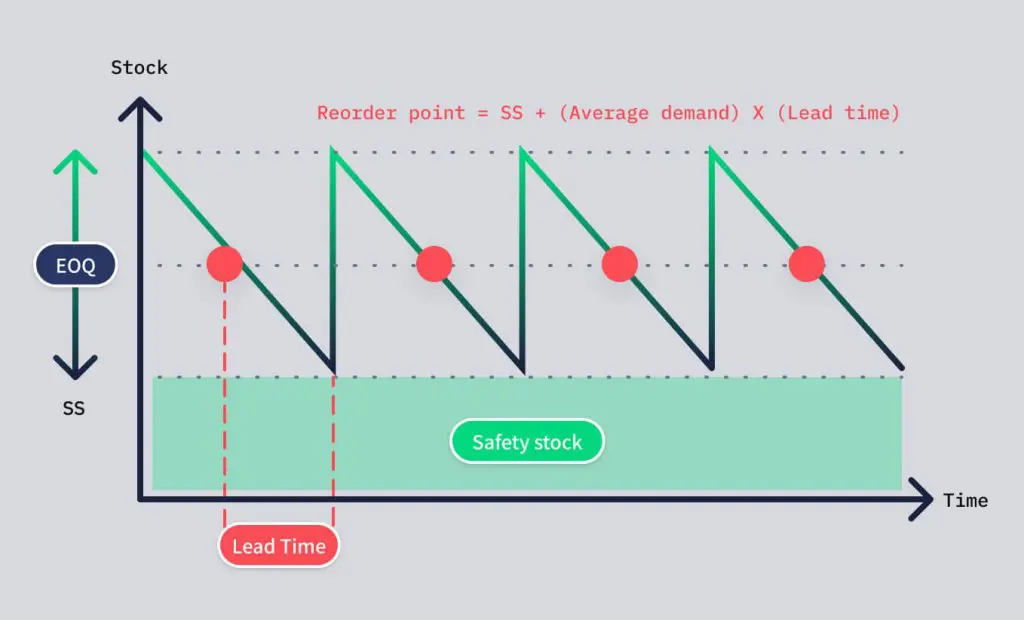Beginning inventory is the jumping platform of many business operations and financial calculations, thus calling for an incredible amount of surety in it being calculated accurately, with the correct factors and values being used. Calculating and knowing the value of one’s beginning inventory is the first step in the right direction towards a more optimized and efficient inventory management strategy, and thus, it is in this article that we will explore the world of opening inventory: how it’s calculated its importance, and its many uses.
What is Opening Inventory?
Beginning, or opening inventory, refers to the total value of stock that is available for selling at the beginning of an accounting period, which should be equal to the total value of the previous accounting period’s ending inventory. The results of calculating one’s beginning inventory informs how certain business operations can be adjusted and maximized, from supply chain efficiency to inventory management.
Opening Inventory Formula
There are many formulas and calculations associated with opening inventory such as the cost of goods sold (COGS) and ending inventory. Let us break down each of these formulas and move onto how they are incorporated into the opening inventory formula.
COGS = (beginning inventory + purchases) – ending inventory Ending inventory = (beginning inventory + purchases) - COGS
Therefore,
Beginning Inventory = (COGS + ending inventory) – purchases
We do know that the opening inventory is equal to the previous accounting period’s ending inventory value, however, should a company want to confirm the accuracy, these are the steps that should be taken:
Step 1: Gathering the Data
This involves gathering, checking, and confirming that the data available from balance sheets and financial reports are all accurate.
Step 2: Apply the formula
How to Calculate Beginning Inventory
Beginning inventory must be identical to the previous periods ending inventory, however, if we wanted to calculate the beginning inventory we must have the following data:
- Ending or closing inventory
- Purchases
- COGS
So, working back from the closing inventory, the stock on hand at the end of a given period, we must add the COGS (Cost Of Goods Sold) and subtract the purchases:
Beginning Inventory = Ending inventory + COGS – Purchases
It is however recommended that stock-taking be made periodically, especially at the end of an accounting period, to maintain the accuracy of your accounts.
Uses for Beginning Inventory
We know that beginning inventory can inform on the decision-making of many different areas within supply chain management, but how and in what ways? Let us assess!
COGS Calculation: Beginning inventory is an essential component in the calculation of the cost of goods sold. By subtracting the beginning inventory from the sum of purchases and ending inventory, you can determine the cost of goods sold during a specific period. This information is vital for assessing the profitability of a company and calculating its gross margin.
Financial Reporting: Beginning inventory is included in the balance sheet as a current asset, reflecting the value of the current set of inventory at the start of an accounting period. This helps stakeholders, creditors, and investors assess the company’s liquidity and overall financial health.
Inventory Management: Thorough inventory management sits at the heart of an optimized and efficient supply chain and workflow, and opening inventory plays a major role in its control. It helps in determining reorder points, assessing stock levels, and planning for future inventory needs. Using beginning inventory along with sales projections and demand forecasts, businesses are able to organize purchases and production accordingly.
Budgeting and Forecasting: As explained above, opening inventory is used to provide further insights into sales projections and demand forecasting to create a more accurate and reliable forecast. It provides a baseline for projecting inventory sales production requirements, and potential cost implications. Demand forecasting tools like Intuendican assist in these operations.
Industry Specific: Opening inventory’s uses can be adjusted to better suit the industry in which it is being used. In manufacturing, beginning inventory helps determine the availability of raw materials and components needed for production, whereas in retail, it enables businesses to monitor stock levels and track product performance, which ultimately informs on sales strategies and decisions moving forward.
Why is Beginning Inventory Important?
Accurate and reliable beginning inventory data holds significant importance across financial statements, inventory management, and decision-making processes, serving as the foundation for calculating the COGS, determining profitability, and assessing inventory levels. Making use of reliable opening inventory figures plays a substantial role in generating accurate financial statements which provide stakeholders with a clear view into a company’s assets and financial health. Moreover, inventory management is largely supported by the opening inventory figures calculated, as stock can be better optimized, and production and purchases can be planned so that stock-outs or overstocking situations are avoided.
It is imperative that beginning inventory calculations remain accurate, as inaccuracies can result in unreliable financial reporting, distorted profitability analysis, inefficient inventory management, and flawed decision-making. The consequences are dire, with financial losses and customer dissatisfaction holding the heaviest weight. Therefore, ensuring the accuracy and reliability of beginning inventory data is essential for maintaining the integrity of the business’s ecosystem and the total flow of operations throughout the organization.





